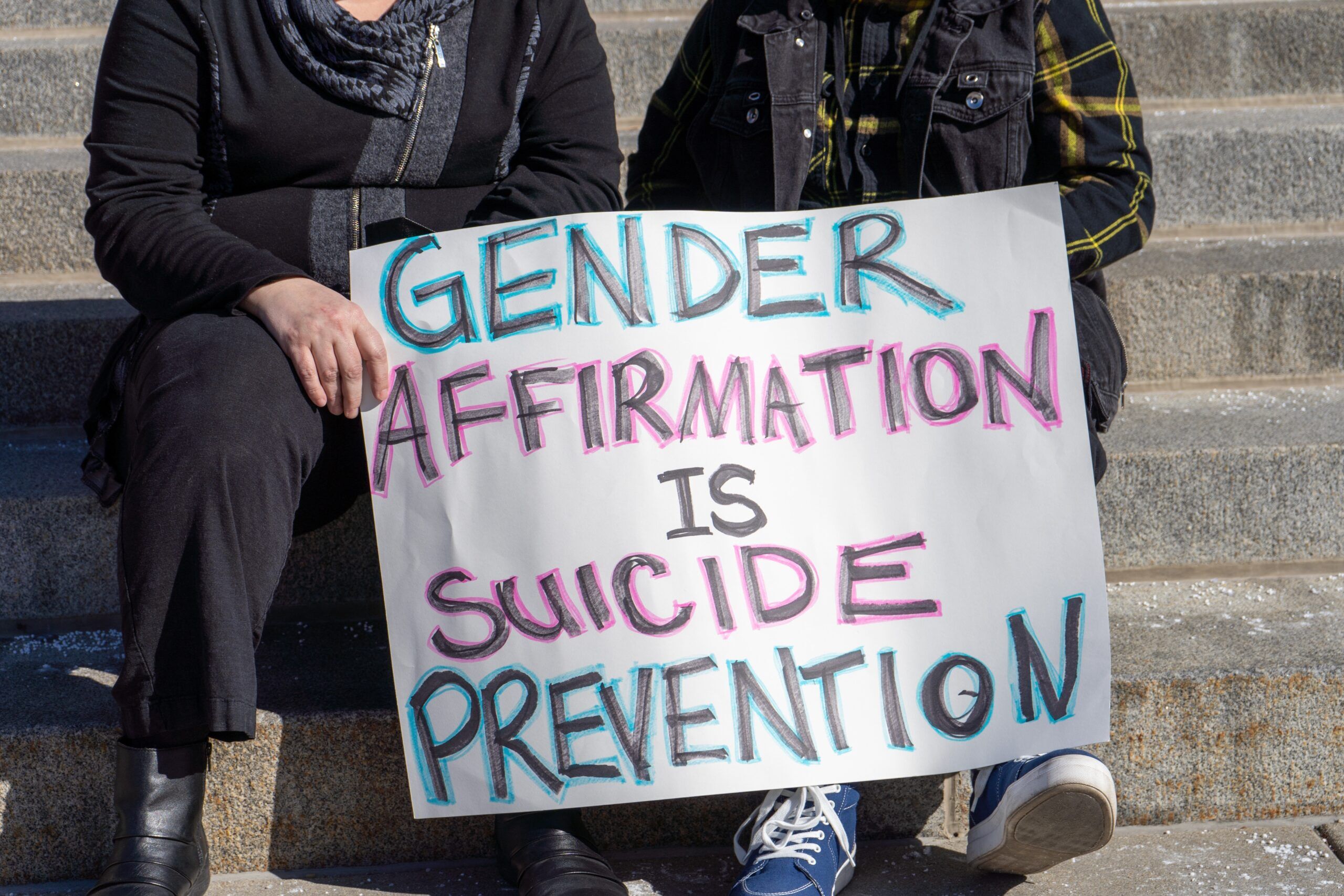A pivotal court case challenging a gender-affirming care ban has been making steady progress up the judiciary ladder. Although past challenges have successfully argued against such laws, even in courts of Trump appointees, this latest ruling could represent a shift in that consensus. And the key to that argument is the way in which the Supreme Court bypassed sex discrimination protections to overturn Roe v Wade.
Earlier this month, the US Court of Appeals for the Sixth Circuit blocked a prior court’s injunction on a gender-affirming care ban in Tennessee. Essentially, this allows the ban to remain in effect while the legal challenge proceeds.
Like many such challenges, the case hinges on whether a gender-affirming care ban constitutes sex discrimination. As the Supreme Court ruled in Bostock v Clayton County, discrimination against LGBTQ+ people requires taking the person’s sex into account—that is, it depends on the idea that certain behaviors, modes of self-expression, relationships, and medical procedures are permissible for one sex but not another.
RelatedClearly we’ve been stanning the wrong Batman.
Generally, gender-affirming care bans do not prohibit doctors from prescribing cisgender patients with medical treatments that confirm their gender. Most courts up until now have sided with the reasoning that such laws inherently constitute sex discrimination. However, in overturning abortion precedent in Dobbs v Jackson Women’s Health Organization, the Supreme Court argued that the banning of certain medical procedures is not a form of sex discrimination.
Subscribe to get a twice-weekly dose of queer news, updates, and insights from the INTO team.
in Your Inbox
In his opinion, Sixth Circuit Chief Judge Jeffrey Sutton quoted one particular point in the Dobbs decision: “The regulation of a medical procedure that only one sex can undergo does not trigger heightened constitutional scrutiny unless the regulation is a ‘mere pretex[t] designed to effect an invidious discrimination against members of one sex or the other.’”
Sutton goes on to reason, “If a law restricting a medical procedure that applies only to women does not trigger heightened scrutiny, as in Dobbs, a law equally appliable to all minors, no matter their sex at birth, does not require such scrutiny either.” In other words, if the Dobbs decision allows for exceptions in banning gender-related care, other laws may follow suit.
From the moment the Dobbs decision came down, it was clear the ruling would have implications beyond abortion. Justice Clarence Thomas even said the quiet part out loud, pointing out the ruling could force reconsideration of other legal precedents, including gay interracial marriage. Now, through Dobbs, right wing judges have found a potential pathway to oppose trans rights and justify denying vital medical treatments to some Americans and not others.
For now, it is unclear whether the case will move up the chain to the Supreme Court. Sutton gave the Sixth Circuit a deadline of September 30, 2023 to reconsider the case.













